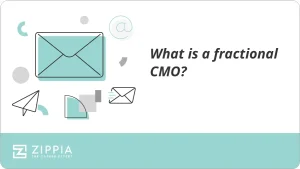
No matter if you are just starting out or an established brand, having a secure online presence is paramount. This includes having strong authentication and authorization procedures in place.
eCommerce security relies on keeping customer data protected from hackers and other cybercriminals. This can be achieved with various security measures like antivirus software, firewalls, and encryption.
Protecting Your Customers’ Data
As a business, your customers’ data is essential for your success. It provides invaluable insights into their preferences and behaviors that can be utilized to enhance customer service and marketing initiatives.
E-commerce security allows you to safeguard your customers’ personal information. Good password hygiene and being mindful when clicking links and downloading attachments can shield your business from various common threats, like man-in-the-middle attacks that allow hackers to steal credit card numbers and other sensitive data from users who log on via public Wi-Fi networks.
E-commerce security can protect your business from costly breaches that cost millions in losses. Cybercriminals frequently target ecommerce sites due to the abundance of valuable information they contain, such as inventory, pricing information and supply chain details. With proper protection in place, ecommerce sites can remain secure from such attacks.
Encryption
One of the most effective methods for protecting your customers’ data is encryption. Encryption scrambles information so it cannot be read by someone without a special key or password.
This method of safeguarding customer information helps companies abide by industry regulations and government policies that require organizations to safeguard personal data. Furthermore, it shields companies from identity theft and blackmail by hackers.
Encryption helps safeguard sensitive data on both mobile devices and static servers, guarding against man-in-the-middle attacks during transmission. It also helps avoid a data breach in case of loss or theft of a device.
Another principle of eCommerce security is non-repudiation, which requires sellers and buyers to complete their transactions. This ensures that all parties involved in an online transaction can demonstrate they have followed through on their commitments.
Multi-Factor Authentication
Multi-factor authentication (MFA) adds an extra layer of protection that keeps unauthorized users from accessing your data. It requires users to prove their identity using two or more authentication factors before being granted access.
For instance, having a credit card and Personal Identification Number (PIN) is an effective MFA factor. But this alone won’t be sufficient to safeguard your account.
Passwords are the most widely-used form of authentication, yet they’re surprisingly insecure. Passwords can easily be stolen or guessed, making them an attractive target for cybercriminals.
Multi-factor authentication (MFA) solutions make it more difficult for users to steal their credentials through phishing scams or other methods. Studies show that multi-factor authentication is the most reliable form of security available.
Backups
Backups not only protect your customers’ data, but they can help you quickly restore your site in case of a disaster such as flooding, fire or theft.
Backing up data using an external device is the most popular and cost-effective option for keeping a copy of your website. This method offers convenience and affordability at its finest.
Maintaining multiple copies of your data is a wise idea, as it provides more protection in case one backup fails or becomes corrupted.
If you want to ensure the security of your backups, encryption may be the way to go. This adds another layer of protection for business-critical data and reduces ransomware risks.








